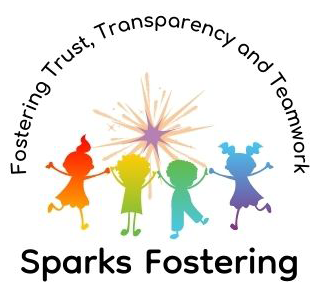Special Guardianship Orders (SGOs)
A Special Guardianship Order (SGO) gives a child’s carer legal parental responsibility for a child, without having to adopt the child.
SGOs are often issued to family or friends of the child’s parents when the parents aren’t able to offer stable full time care to the child. However, foster carers are sometimes supported by social care to obtain SGOs of children who have lived with the carers for a long time.
Why would a foster carer want parental responsibility?
Obtaining parental responsibility under an SGO gives the child a sense of permanence in the home. This can help the child to settle and feel like a permanent member of the family.
Parental responsibility gives the carers the legal right to make the same decisions that a birth parent could make, such as applying for the child’s passport, changing the child’s name or living abroad.
Some foster carers are settled with the children in their care and do not want practical, financial or other support to care for the child. With an SGO the level of intervention and visits from the fostering agency and from the child’s social care is likely to decrease significantly. The carers would also not need to complete as much training (if any) or paperwork.
SGO or adoption
An SGO is more appropriate than adoption when the child continues to have meaningful contact with their birth parents. The SGO respects the status of the birth parents in the child’s life and it supports the child with any conflicted feelings of loyalty they may have between the carers and parents.
Ongoing support
Social care support for SGOs is arranged via contracts which are renewed annually. Foster carers may find that training, supervision and support from staff and financial support is reduced. SGO contracts are reviewed annually so carers should also be mindful that support may decrease following the reviews.
Becoming a special guardian
To obtain an SGO, the applicant must be over 18, not be the child’s birth parent and have the consent of others who hold parental responsibility (usually the birth parents).
Foster carers who want an SGO would be supported by their social worker and the child’s social worker if it is appropriate to do so. Foster carers must not discuss the option with the child until they have discussed it with the social workers and the child’s parents. Social care would apply for the SGO via public law proceedings.
Carers of children who aren’t in foster care can apply for an SGO via private law proceedings and legal advice would be needed.
The SGO automatically terminates when a child becomes 18 years old.
When an SGO may not be appropriate
If children don’t have a long-term and settled relationship with the carers, it may not be appropriate to apply for an SGO because it is likely to reduce the amount of support available to carers from social care.
For carers who are registered with an independent fostering provider, getting an SGO would terminate the fostering agency’s involvement and oversight of care provided to the child. Many foster carers are dependent on the support and training provided by their fostering provider.
Getting an SGO may also impact the financial support available to the family, which may lead to financial struggles for the family. Financial support may also be needed for additional support for the child, including therapists and clubs. Carers who are reliant on financial support from social care should agree on a long term plan of support with social care.






